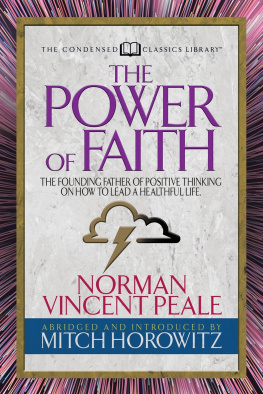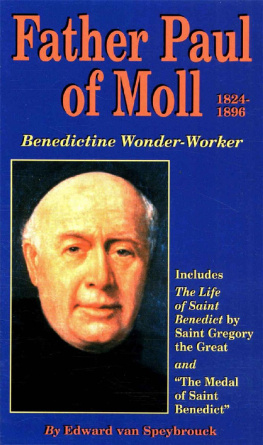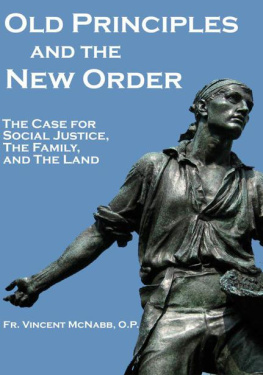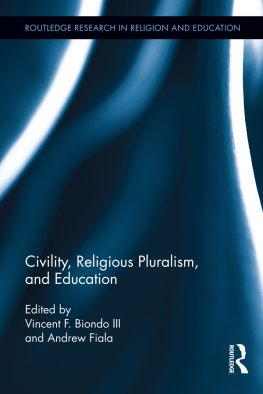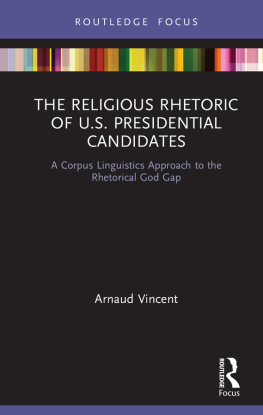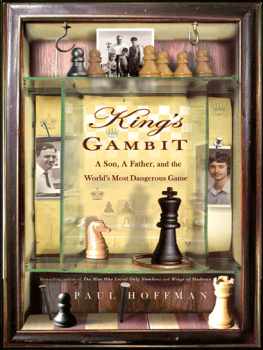PREFACE.
Table of Contents
The reply of Maximilian to the wealthy courtier who tendered him a goodly purse of gold for a title of nobility, was worthy of that emperor: "I can enrich thee," he said, "but only thy own virtue can enoble thee" All true grandeur, excellence, and dignity, are the offspring of virtue. Even the most renowned oracles of paganism proclaim this, and the very persecutors of holiness are often constrained to pay homage to their victim. No wonder, then, that whenever we are privileged to find one of those rare mortals, whom virtue has unmistakably marked as her own, we lovingly attach an exceptional importance to everything connected with his history. Such assuredly was he whose "account of what befel" him during his first ten years in America, is now for the first time published in English. A brief sketch of the religious Order to which he belonged, of the life he led, and of the Monastery he founded, may give added interest to his own simple and edifying narrative.
What Scripture terms "the world," and so emphatically denounces as such, is the poisonous source of the mother-evils described by St. John as "the concupiscence of the flesh, and the concupiscence of the eyes, and the pride of life." Flight from the contamination of this threefold inordinate love of pleasures, riches and honors, being essential to salvation, is most easily, most surely and most meritoriously achieved by those who, in answer to a Divine call, consecrate and give themselves wholly to God, by the practice of the evangelical counsels of chastity, poverty and obedience. Those who embrace this angelic profession form the choice portion of the fold of Christ. They rank as His spouses, and, by the holy ambition of their virgin love, console Him for the craven defections or the cold indifference of so many Christians.
All Christians animated by the spirit of Jesus are religious, just as they are holy, and kings and priests (I Peter 2,9). Such is the unity of the marvellous body of Christ, the Church, whose soul is infinite love, that her every member shares, in some sense and measure, all her sublime prerogatives. But as God willed that in His family some goods should be common to all, so He likewise decreed that other goods should be reserved to comparatively few, and through these chosen and privileged ones benefit the rest. Hence, as besides this elementary royalty and priesthood conferred by baptism, there are, according to the express order of God superior and official royalties and priesthoods, in like manner besides the fundamental religion, which is the vital breath of every soul in a state of grace, there is a religion more eminent, more definite, more perfect. Thus as there is here below a sacerdotal and royal state, so likewise is there a religious state which is confined to those only who bind themselves by vows to a monastic life. It is evident, therefore, that when Catholics use the expression "religious Order," or term a monk or nun "a religious," they are perfectly justified in doing so, the cavillings of Dr. Trench to the contrary notwithstanding.
Each religious order is characterized by the special purpose for which it was founded, and by the constitution and rule which its members are to follow. The observance of the Benedictine rule was greatly relaxed in the monasteries of France towards the close of the eleventh century, when St. Robert (1098) inaugurated a reform at Citeaux, which resulted in the establishment of the Cistercian Order. A monastery of this Order was subsequently (1140) founded in La Perche, France, by the Count of Perche, and was called La Trappe. In 1662 the commendatory abbot of La Trappe, Armand Jean le Bouthilier de Rance', a nobleman who abandoned wealth and a brilliant career, visited La Trappe, undertook a new reform of the Cistercian rule, and thus became the founder of that branch of this Order which became known as the congregation of La Trappe. In consequence of the Revolution of 1789, one of the Trappist Fathers, Dom Augustin conducted twenty-four of his brethren from France to Valsainte, in Switzerland. Here they decided to adopt a rule still more strict than that which they had hitherto observed. This step occasioned a division in the Trappist Order: some monasteries following the rule of Valsainte, others that of de Rance'. An appeal to Rome resulted in a decree dated October 3rd, 1834, by which all Trappist monasteries were placed under one government. The decree not having however had the desired effect, the Holy See decided in 1847 to sanction two distinct congregations, one to follow the constitution of de Rance', and the other to observe the rule of St. Benedict, with the primitive constitution of the Cistercian Order. To the latter congregation belong the Trappist monasteries of Canada and the United States, whose time-table on week days during winter is as follows:
At two o'clock, a. m., the Trappists rise and proceed to their chapel, where they devote their time to the recitation of the Office, meditation, &c., till 7.45, when they have High Mass, followed by manual labor, which, with the interruption of only half an hour given to the recitation of Office and examen of conscience, continues till 2 p. m.; ten minutes more and they break their long fast of twenty-four hours with the lean and only repast of the day. At 6 p. m. begins spiritual reading, immediately followed by compline and other devotional exercises till 7, when they retire to their much needed rest on their hard straw mattresses. Perpetual silence is prescribed, unless in case of necessity, so that the Trappist's whole life is one of extraordinary austerity and of incessant recollection, reminding him at every turn of the shortness of life and the tremendous rigor of judgment. The time-table for summer varies in some minor practices and observances, while, according to that of Sundays and holidays, those religious in the latter case rise at midnight, and in the former at 1 a. m., and busy themselves till 7 o'clock, p. m. during winter, and 8 o'clock during summer in the praises of the Lord.
James Merle was born at Lyons, France, the 29th October, 1768. His father was a much respected physician in that city. On the 7th of April, 1798, while the godless Revolution was carrying resistless devastation over the country, he privately received the holy order of priesthood at the hands of Mgr. C. F. D. Dubois de Sanzay, Archbishop of Vienne, and seven years afterwards he entered the Trappist Order, taking the name of Father Vincent de Paul, by which he has always since been known.
In his memoir Father Vincent speaks of having bought a large tract of land near the sea in Nova Scotia, and of having built a house thereon. This was in Tracadie, where he resided for some years previous to his return to France in 1823. In 1824 he came again to Tracadie with another worthy priest of his Order, Father Francis, a native of Freiburg, together with three lay brothers, and the house above referred to became thenceforth the monastery of Petit Clairvaux. A few years later three other lay brothers were admitted, two of them from Halifax, and one from the United States.
Until the Rev. John Quinn was appointed parish priest of Tracadie, (1837) Father Vincent had pastoral charge of the three missions of Tracadie, Havre au Boucher, and Pomquet, and the old people of the place still recount his innumerable acts of extraordinary zeal and devotion. "He scarcely ever had the stole off his neck during Lent," is the remark of one of them. He also made frequent excursions to Cheticamp, Arichat, and other parts of Cape Breton, to preach missions there, and to assist the dying. In his memoir he speaks of that sublime pilgrimage of the heart, the admirable devotion of the Way of the Cross, as one especially acceptable to God; and no wonder it bore marvellous fruit as conducted by him. At each station this holy servant of God did not content himself with reading the usual prayers: he gave expression to heavenly thoughts inspired by his own burning love of his crucified Saviour, producing a mysterious and lasting echo in all hearts. The church was always crowded on those occasions. To prepare children for their first communion, he devoted six entire weeks of instruction each year. His capacity for work was immense; and while hurry never appeared in his actions, he managed to glide through them with a masterly ease far out-stripping the speediest progress of ordinary mortals. A supernatural light seemed to supersede the necessity of recourse to the usual slow and laborious process of reasoning in seeing one's way, and to endow him with an intuition excluding all doubt, and with an instinct ever ready in performance. Thus for everything he found ample time, because no particle of his time was lost. He was a living, palpitating, breathing, vocal, acting temple of the Holy Ghost, and this Divine indwelling was, in a manner, visible to all. At the altar, during the holy sacrifice which he daily offered, it seemed to transfigure his countenance so as to impress his heavenly citizenship upon all beholders. In administering the sacrament, in instructing the people, in his incessant endeavors to keep or win them from sin, and to provide for all their spiritual wants, the same irradiation of holiness imparted the most extraordinary efficacy to his charity and zeal.




